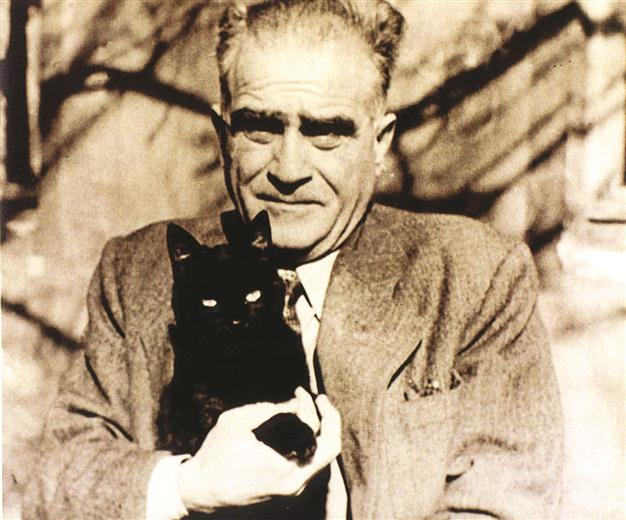Literature shines in its newly opened museums

Ahmet Hamdi Tanpınar Museum and Library will serve as a museum and library and includes Tanpınar’s manuscripts.
Alay Köşkü (Procession Kiosk), which is situated within Topkapı Palace’s walls, is preparing to become the Ahmet Hamdi Tanpınar Museum and Library. The museum will open Nov. 12 with the participation of Culture Minister Ertuğrul Günay. It was organized within the framework of a project by the Culture and Tourism Ministry.The Procession Kiosk is a structure next to Gülhane Park in Istanbul and served as a building for the Ottoman Padishah. It is located in close proximity to the Sublime Port.
“In Istanbul’s Procession Kiosk, visitors will have the opportunity to discover all the objects, manuscripts and original translations of Ahmet Hamid Tanpınar’s works,” said Onur Bilge Kula, Culture and Tourism Ministry publishing manager.
The library also will serve as an archive for Ottoman-era magazines that focused on art and aesthetics, and will feature translated books and texts.
There will be works and sculptures of famous writers of Turkey such as Orhan Pamuk, Yahya Kemal, Necip Fazıl Kısakürek, Nedim and Nazım Hikmet.
Within the scope of the Culture and Tourism Ministry project to commemorate writers and poets, the Ahmet Arif Museum Library opened in Diyarbakır and Karacaoğlan Literary Museum Library opened in Adana. Kula said Erzurum would have an Evliya Çelebi Museum Library and İzmir would have a museum for Atilla İlhan. The Mehmet Akif Ersoy Library will be opened in Ankara.
About Ahmet Hamdi Tanpınar
Tanpınar is one of the most important authors of Turkish literature, successfully combining Eastern and Western cultures within his writings. Yahya Kemal Beyatlı played an important role in his upbringing. In his poetry, he used Turkish classical music and dreams as the textile of his works. Both in his poetry and novels, psychological analyses, history, the characteristics of his time, the bond between society and the individual, dreams and the problems of civilization have great importance.
One of his most significant works is a novel titled “The Time Regulation Institute” (Saatleri Ayarlama Enstitüsü). The book has been widely acclaimed as an ironic criticism of the bureaucratization process with the implication that its title suggests, although that is not only what the book is about. In fact, the book can be read from quite different perspectives and cannot be exhausted in only one reading. First of all, it is a great psychological analysis of a man who suffers from being unable to adapt himself to his time, in other words to modern times. So the fact of bureaucratization is indeed incorporated into a broader problem: modernization and its impact on the individual. Most of the characters of the novel seem to be struggling in strange manners to survive the modern times. In this way, the concept of “time” occupies a central place, giving a deeper sense and even a philosophical taste to the novel.
Divan Literature Museum
Istanbul also hosts a large Divan Literature Museum, which is devoted mostly to Islamic art and literature. The museum exhibits manuscripts of famous poets and writers of different periods of the Ottoman Empire. They are valuable not only as monuments of literature, but also calligraphy. An exclusive part of the palace called Mevlevihane is a significant part of the museum where visitors have the opportunity to discover costumes, musical instruments and even letters.
















